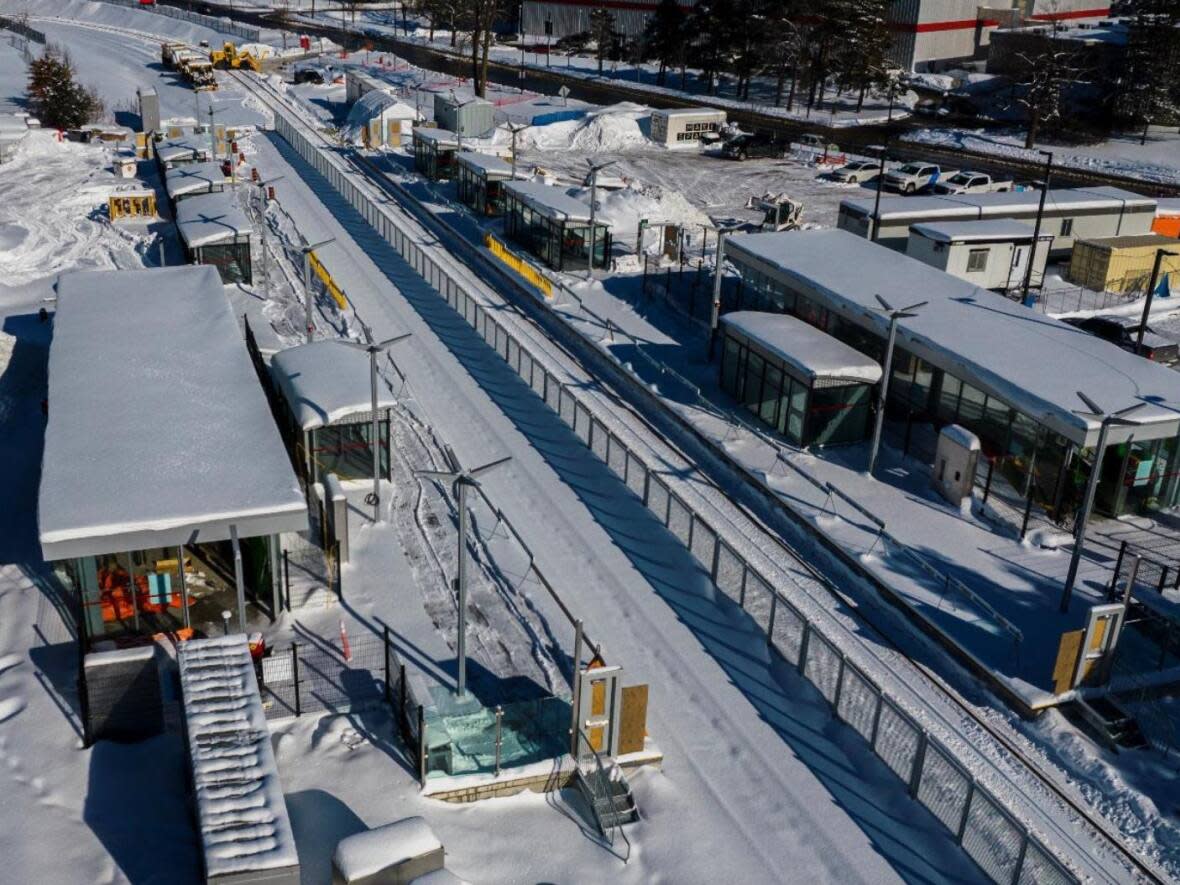O-Train to skip another September at Carleton University

Students and staff at Carleton University will once again head back to campus in September without being able to ride the promised new north-south Trillium Line.
During Wednesday's Stage 2 light rail construction update at Ottawa city hall, however, councillors were most intent on how that train line would undergo final testing. They want to ensure it does not repeat the tumultuous Stage 1 LRT launch that was so heavily scrutinized during last year's public inquiry.
"I'm sure the students at Carleton are going to be disappointed because they've been really impacted by this," acknowledged the light rail subcommittee's chair, Coun. Steve Desroches. "But I don't think anyone is saying, 'Accelerate this, cut corners, get it and running without all the due diligence taking place.' We need to get it right."
The 19-kilometre Trillium Line, also referred to as Line 2 of the O-Train, is under construction from Bayview Station to Riverside South, with a four-kilometre spur line to the Ottawa International Airport.
The first of three extensions under the municipality's Stage 2 construction project, the Trillium Line was originally scheduled to open in time for the resumption of classes last fall.
Best estimates by rail construction director Michael Morgan now see the City of Ottawa taking over that train line this October, after contractor Transit NEXT, a wholly owned subsidiary of SNC-Lavalin, does its final trial run in September.
A different contractor, Kiewit Eurovia Vinci, is at work extending the electric Confederation Line. The western extension to Moodie Drive and Algonquin College remains 17 months behind schedule and is due to be transferred to the city in late 2026, while the eastern extension to Trim Road is just 51 days behind and should undergo final testing in January 2025.
Tracks and trains
Much of the attention at Wednesday's meeting was on the Trillium Line, however.
One key date Morgan is watching is Aug. 1, when according to the contractor's schedule trains should be running along the entire Trillium Line. If that works, the city can move into several weeks of training staff.
As it stands, most of the track has been laid except for a section over Hunt Club Road. The diesel trains for the Trillium Line have been in the city for some time, and include a combination of seven new Swiss-made Stadler trains and six Alstom LINT trains previously used on the line before it closed for construction.

Siemens Mobility is responsible for updating the train signaling system and the Trillium Line's train control system. It said it has delivered its parts on-schedule for Transit NEXT to install.
Morgan said those elements are not yet in place across the line, however.
The struggle to integrate the many systems of the Confederation Line had contributed to that project's delay, but Morgan doesn't see the same issues for the Trillium Line.
"Right now I don't have the same level of concern. We don't have the same level of complexity as we had on Stage 1," he said. "We're in a much better spot than if I think about the last project."
Trillium Line testing
City councillors asked several questions Wednesday about how the final testing would be different from August 2019, when Commissioner William Hourigan found a small group of city staff and politicians knew the criteria for Stage 1 of the Confederation Line had been lowered to allow the new system to pass.
Morgan pointed to two main changes. First, the final trial period would be 21 days — longer than the 12 consecutive days originally set for Stage 1 before the criteria were changed. Second, the City of Ottawa wrote specific trial run criteria into the contract.
That document states Transit NEXT must hit 98.5 per cent on-time performance over a 14-day period within the 21-day trial running period.
Councillors also wanted to know if the system had been tested in winter, which was another criticism of the Stage 1 project.
Morgan pointed out a short stretch of test track is being used between Hunt Club Road and Leitrim station, with Siemens's train control systems in place. Trains have been able to run back and forth in that area in the past few months even on a very cold winter day, Morgan reassured councillors.
As for the extensions to the Confederation Line, which is powered by an overhead electric catenary, Morgan said the hope is that early testing can begin on the eastern extension by this fall.


